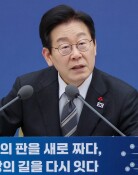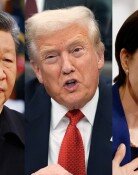Korea fails to dodge EU sanctions against Iranian oil shipments
Korea fails to dodge EU sanctions against Iranian oil shipments
Posted May. 28, 2012 05:21,
The U.S. will reportedly include Korea on the list of countries exempt from the National Defense Authorization Act that governs sanctions against Iran, including a ban on Iranian oil imports. The list will be announced this week.
Seoul`s aggressive efforts to prevent damage from suspension of such imports are thus bearing fruit. Despite this, however, Iranian fuel will be effectively suspended by Korea from the end of the month because the latter failed to dodge the European Union`s "sectioning of reinsurance on ships carrying Iranian oil."
Watchers say Korea has suffered unexpected damage from the "hidden obstacle" of the EU`s sanctioning of reinsurance in that the Korean government merely focused on U.S. sanctions.
A Jan. 23 meeting of EU foreign ministers announced a draft bill on sanctions against Iran to take effect from next month. This was when attention was focused on the issue after Robert Einhorn, the U.S. State Department`s special adviser for nonproliferation and arms control, visited Korea Jan. 16 to urge the government to join sanctions on Iran.
The EU bill on sanctioning Iran includes a provision that curbs the sale of reinsurance policy to vessels that carry Iranian oil.
An oil carrying vessel cannot operate without reinsurance since it could incur huge damage in case of accident. A reinsurance policy is worth up to 1 trillion won (860 million dollars) per vessel because it must cover not only massive damage to the vessel itself in the event of wreckage, but also human losses and environmental protection. Therefore, most countries bar oil-carrying vessels without insurance from entering its ports.
The problem is that most global reinsurance companies that handle oil vessels are based in Europe. If the EU bans such companies from selling reinsurance policies to vessels transporting Iranian oil, the Korean oil industry will have no choice but to halt imports of Iranian oil. Considering that transporting Iranian oil to Korea takes 40 days, shipments will be halted from late this month.
Officials at Korea`s Knowledge Economy Ministry, Strategy and Finance Ministry and Foreign Affairs and Trade Ministry say they have been constantly paying attention to EU sanctions as well as to those of the U.S.
A Foreign Ministry official said, "We`ve already examined issues discussed at the EU foreign ministers meeting in January and the EUs specific implementation rules on sanctioning measures in March. We`ve also been taking the necessary steps in requesting the EU to give us an exemption from the rules jointly with Japan."
Seoul had not been keeping close watch on the potential major ramifications of the issue until the EU announced implementation rules on sanctions in March, however. Government officials said that until February, they thought things would be okay only if fears over the U.S. sanctions were handled, with one saying, "(Realizing the seriousness of the issue belatedly), we strove to find countermeasures while keeping it secret to the media."
A presidential office staff member deeply involved in the matter also said early this month, "All concerns have been addressed (through the application of exemption to the U.S. National Defense Authorization Act).
Seoul plans to belatedly send negotiating teams to major EU member states and Brussels, while the EU is headquartered. Even inter-ministerial coordination is not being done properly in a last-minute effort to find countermeasures, however.
A government source said, "Alternative measures could exist if Korea internally covers part of the necessary reinsurance on its own or cooperating with neighboring countries as Japan does. But each ministry is independently seeking measures and blaming each other, saying, neither this nor that will work."
lightee@donga.com







